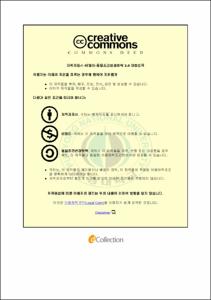부산글로벌빌리지(BGV) 체험학습의 정의적 효과 연구
- Alternative Title
- A Study on Affective Effects of Learning Through Experience in Busan Global Village (BGV)
- Abstract
- The purpose of this study is to investigate the effects of the field trip experience (totaling 17 hours) in the Busan Global Village on the affective domain of the 6th grade children in a local elementary school and to propose any solutions to any emerging issues.
For the research method, 155 6th grade children from a local elementary school participated in the study. The two-day field trip was 17 hours long. The questionnaire surveys were conducted before and after the field trip. The pre-survey questions consisted of 8 basic information regarding the participants and 25 affective domain questions while the post-survey questions consisted of the same 25 affective domain questions and 5 open-ended questions. In particular, the current study tried to compare before and after the field trip in the English Village for affective variables such as the learner’s interest, self-respect, attitude toward English learning, and motivation to study English. Also, the study further attempted to explore if there is any difference in the affective domain according to the gender, academic achievement, and previous exposure to the BGV or similar facilities.
The findings of the study are as follows: First, the field trip experience brought positive results for the children’s self-respect, extroversion, learning anxiety in the affective domain, but there was no visible difference in the variables such as their interest, attitude, motivation, and risk-taking. Second, with regard to the gender differences, the male group showed a statistical significance than the female group. Third, with regard to the change in their academic achievement, the children in the lower level of proficiency showed a statistical significance. Lastly, with regard to their previous exposure to that facility or other similar kinds of facilities, the children who have never been exposed to the BGV showed a positive result.
These results seem to suggest the following implications for the future field trip opportunities in the Busan Global Village: First, the reason that no positive results were yielded in terms of the children's attitude and motivation compared to other variables in the affective domain might be that the field-trip experience was relatively short for any change to take place. Further studies might look at whether or not children are affected by the length of their stay in the facility. Second, when planning future field trips, special considerations must be taken whether or not prospective children have been there before. Implementation of the field-trip program might need to be considered as there are children who have already been to the BGV independently. A variety of program availabilities would enable the BGV to meet the demand of these children for other learning opportunities. Also, teachers who are considering the field trips in the BGV might think about dividing the children into different groups once the program diversity is ensured. Lastly, the field trip should not be a one-time event, but rather the BGV should be able to provide children with continuous learning opportunities of enjoying learning English.
- Issued Date
- 2012
- Awarded Date
- 2012. 8
- Type
- Dissertation
- Publisher
- 부경대학교 교육대학원
- Alternative Author(s)
- Jun, Su Jin
- Affiliation
- 부경대학교 교육대학원
- Department
- 교육대학원 초등영어교육전공
- Advisor
- 박매란
- Table Of Contents
- ABSTRACT ⅵ
제 1장 서 론 1
1.1 연구의 필요성 및 목적 1
1.2 연구 문제 3
1.3 연구의 제한점 3
제 2장 이론적 배경 4
2.1 국내 영어마을 4
2.1.1 영어마을의 의의 4
2.1.2 영어마을 학습의 특징 4
2.1.3 국내 영어마을 현황 5
2.2 부산글로벌빌리지(BGV) 7
2.2.1 학생과정 7
2.2.2 프리미엄과정 9
2.2.3 대학생, 성인과정 10
2.3 정의적 영역 개념 및 중요성 11
2.3.1 흥미도 12
2.3.2 자아존중감 13
2.3.3 태도 및 동기 14
2.3.4 모험시도 15
2.3.5 외향성 16
2.3.6 학습불안 17
2.4 국내 영어마을에 관한 선행 연구 18
제 3장 연구 방법 21
3.1 연구 대상 21
3.2 연구 절차 23
3.2.1 설문지 시행 절차 23
3.2.2 BGV 수업절차 23
3.3 연구 도구 24
3.4 연구 분석 방법 26
제 4장 결과 분석 및 논의 27
4.1 정의적 영역 변화 분석 27
4.1.1 흥미도 27
4.1.2 자아존중감 29
4.1.3 태도 및 동기 31
4.1.4 모험시도 34
4.1.5 외향성 35
4.1.6 학습불안 36
4.2 성별에 따른 정의적 영역의 변화 38
4.2.1 성별에 따른 흥미도 38
4.2.2 성별에 따른 자아존중감 39
4.2.3 성별에 따른 태도 및 동기 41
4.2.4 성별에 따른 모험시도 42
4.2.5 성별에 따른 외향성 43
4.2.6 성별에 따른 학습불안 44
4.3 학업성취도에 따른 정의적 영역의 변화 45
4.3.1 학업성취도에 따른 흥미도 45
4.3.2 학업성취도에 따른 자아존중감 46
4.3.3 학업성취도에 따른 태도 및 동기 48
4.3.4 학업성취도에 따른 모험시도 49
4.3.5 학업성취도에 따른 외향성 50
4.3.6 학업성취도에 따른 학습불안 51
4.4 이전 BGV 체험학습 경험유무에 따른 정의적 영역의 변화 53
4.4.1 이전 BGV 체험학습 경험유무에 따른 흥미도 53
4.4.2 이전 BGV 체험학습 경험유무에 따른 자아존중감 54
4.4.3 이전 BGV 체험학습 경험유무에 따른 태도 및 동기 56
4.4.4 이전 BGV 체험학습 경험유무에 따른 모험시도 57
4.4.5 이전 BGV 체험학습 경험유무에 따른 외향성 58
4.4.6 이전 BGV 체험학습 경험유무에 따른 학습불안 58
제 5장 결론 및 제언 60
5.1 결론 60
5.2 제언 62
참고 문헌 64
부 록 68
- Degree
- Master
- Files in This Item:
-
-
Download
 부산글로벌빌리지(BGV) 체험학습의 정의적 효과 연구.pdf
기타 데이터 / 4.96 MB / Adobe PDF
부산글로벌빌리지(BGV) 체험학습의 정의적 효과 연구.pdf
기타 데이터 / 4.96 MB / Adobe PDF
-
Items in Repository are protected by copyright, with all rights reserved, unless otherwise indicated.